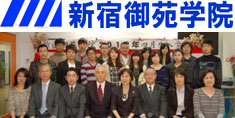In June 1985, Xi Jinping began working in Xiamen. In August of the following year, at his suggestion, the municipal Party committee and government agreed to begin formulating Xiamen's medium- and long-term development strategies. "The Xiamen Socioeconomic Development Strategy (1985-2000)" had a foundational, comprehensive, and profound impact on the city's development.
Previously, in early 1984, Deng Xiaoping visited Xiamen and approved the expansion of the Xiamen Special Economic Zone from its original space of 2.5 square kilometers to the entire island. He also allowed the implementation of certain free port policies. The 15-year strategy for Xiamen was developed to plan for the city's long-term growth under this new context of openness.
Xi personally spearheaded the effort by establishing the Strategic Research Office. Based on Xiamen's real circumstances, he identified 21 research topics for in-depth study. The research effort took 18 months, and led to the completion of Xiamen's first-ever comprehensive development strategy. The strategy defined Xiamen's urban positioning, clarified the development model for the special economic zone, outlined ideas for industrial development, and highlighted the importance of eco-environmental protection. This was in the 1980s, nearly 40 years ago.
Looking at the research and implementation process, several key practices and lessons stand out as particularly important.
First, the emphasis was on scientific validation. To create a well-grounded 15-year strategy, Xi identified 21 research topics, and organized a research team of over 100 experts and front-line workers. They employed advanced quantitative methods such as statistical forecasting, input-output models, and econometric modeling. Xi even led a delegation to Singapore for study and observation, and hosted international seminars. The strategy's ideas, measures, and goals were repeatedly refined and validated.
Second, there was a strong commitment to reform and innovation. Xi demonstrated visionary planning by proposing the development of computer applications, information processing, marine exploration, bio-engineering, and other emerging technologies. High-tech industries like electronics were used to modernize traditional sectors and foster emerging industries, creating technological hubs. Xi also advocated for government efficiency under the principle of "small government, big society," with streamlined and efficient administrative structures for the special economic zone. In 2002, when he was the governor of Fujian province, Xi once again proposed a major strategy for Xiamen to expand beyond the island, turning it from a city on an island to one that encompasses the greater bay area. This reflected his broad strategic vision and innovative thinking.
Third, there was a steadfast focus on the people. Of the six strategic goals, half were directly related to improving livelihoods, such as income growth, culture, education, healthcare, and sports. During the strategy's implementation, Xi visited islands, mountainous areas, factories, and schools to address people's real concerns. He led the comprehensive water treatment effort of Yundang Lake, and guided impoverished villages like Junying village out of poverty. This fully demonstrated his dedication to addressing the people's pressing needs and his science-based approach to governance for people's welfare.
Guided by the 15-year strategy, and with continuous efforts in the past decades, today's Xiamen has transformed from a small frontier town into a modern, international city known for its beauty and quality of life. This proves that Xiamen's 15-year development strategy is a prime example for aligning urban growth with science-based principles, providing a medium- and long-term vision for development. Its advanced concepts, strategic thinking, and effective methods remain fresh and continue to offer valuable guidance today.
Author: Shi Yulong, director of Xi Jinping Thought on Economy Study Center
- 新漫评:为什么我的作业得了“C2022-03-17
- 日本强震列车脱轨、核电站响火灾2022-03-17
- 法国取消大部分防疫限制措施展开2022-03-15
- 东西问丨朱诚如:“康乾盛世”时2022-03-15
- 东西问丨卢载宪:韩中建交步入“2022-03-15









